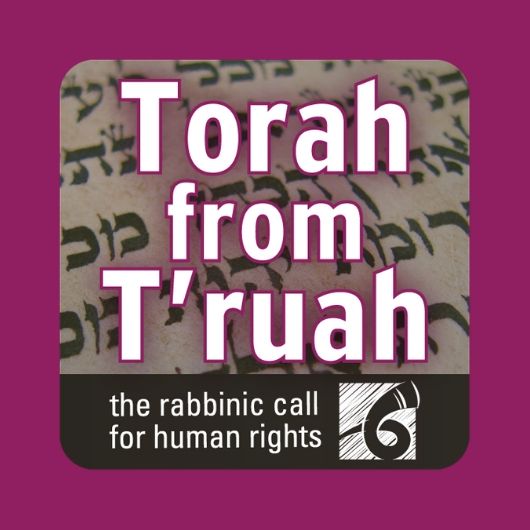D'var Torah

A Trauma-Informed Reading of Parshat Devarim: Advice to Activists on Building Resiliency
In this week's commentary on Devarim, Rabbi Francine Roston reflects on the need to understand and process trauma before moving forward.
more

Human Rights In Progress (Slowly)
Rabbi J. Fred Schwalb traces the history of women's rights in the Torah and offers a prayer for the continued evolution of our ideas.
more

The Sound of Longing
Rabbi Maya Glasser points to the importance of recognition, whether with Zelophehad's daughters in Parshat Pinchas, or those in solitary confinement in our own day.
more

Opening Our Eyes
Rabbi Shira Koch Epstein analyzes Balaam's blindness and points to our own blind spots in this drash on Parshat Balak.
more

How We Deal With Our Anger
For Parshat Chukat, Rabbi Matthew D. Gewirtz offers us a more useful way to channel our anger.
more

Argue for the Sake of Holiness
Rabbi Sharyn Henry reflects on what it means to argue for the sake of heaven in Parshat Korach.
more

Torah from T’ruah for Tisha B’Av
Divrei Torah for Tisha B'Av by Rabbis Edward C. Bernstein, Ruhi Sophia Motzkin Rubenstein, Lizz Goldstein, Lev Meirowitz Nelson and Denise Handlarski.
more


The Torah of Criticism
Rabbi Micah Liben calls us to resist complacency and to remain vigilant when our rights are in danger.
more

“What’s Love Got To Do With It?”
Rabbi Dr. Jenny Solomon discusses the importance of blessing with love.
more
